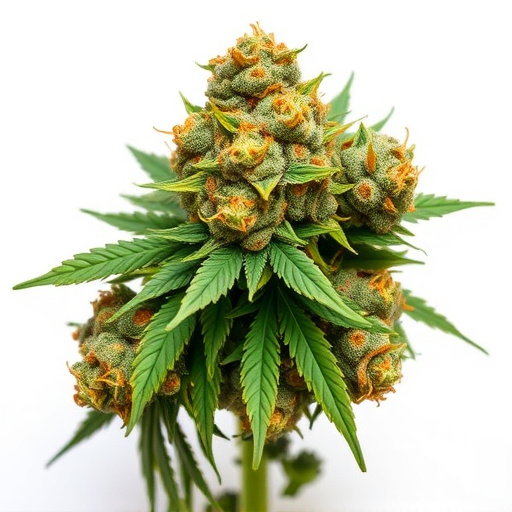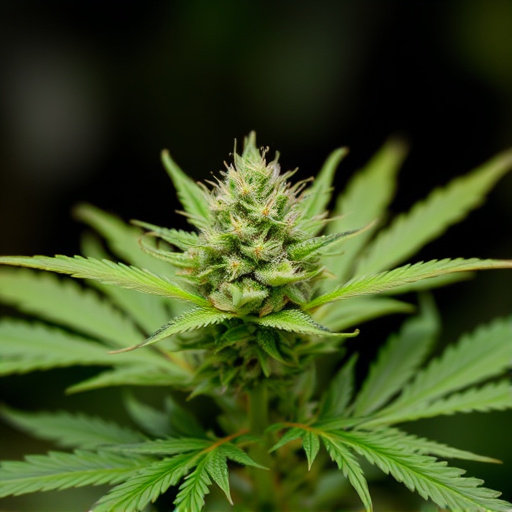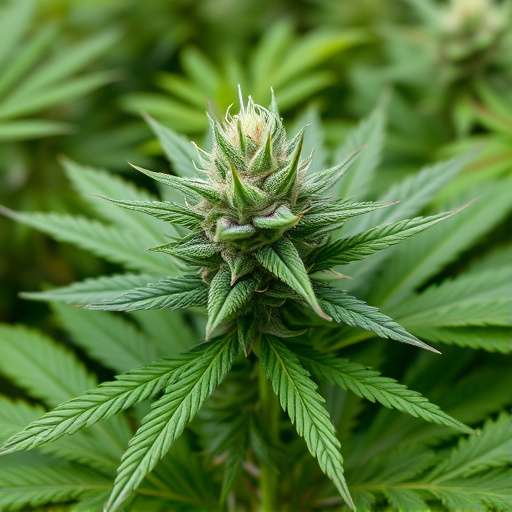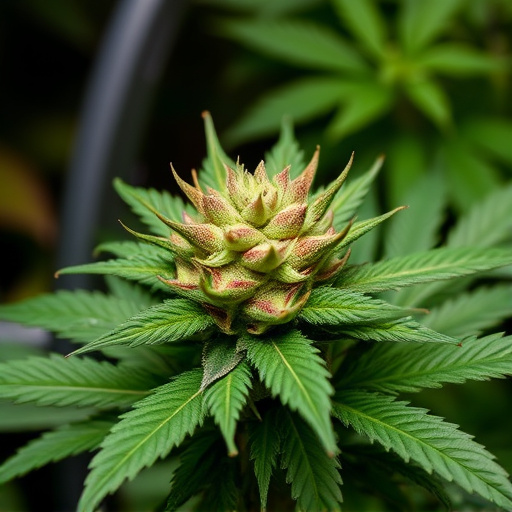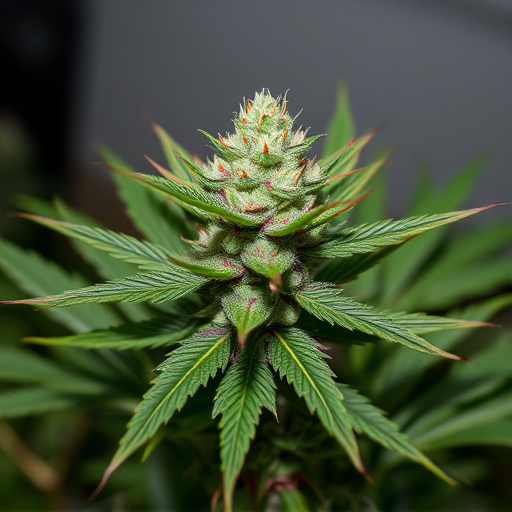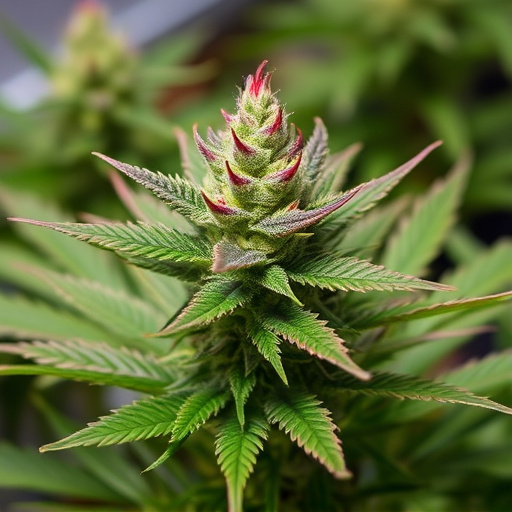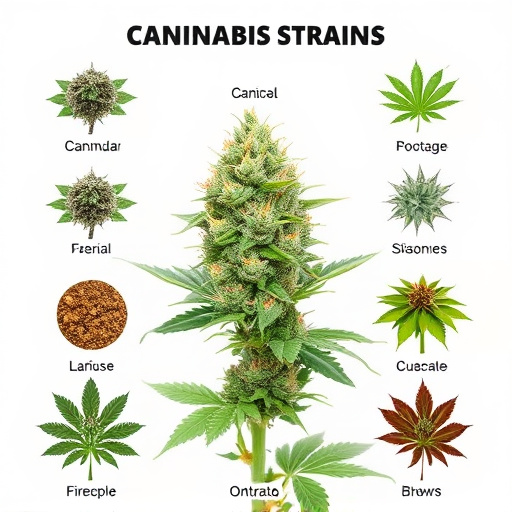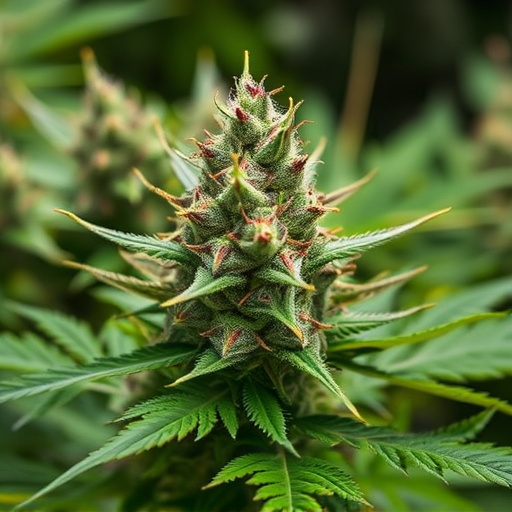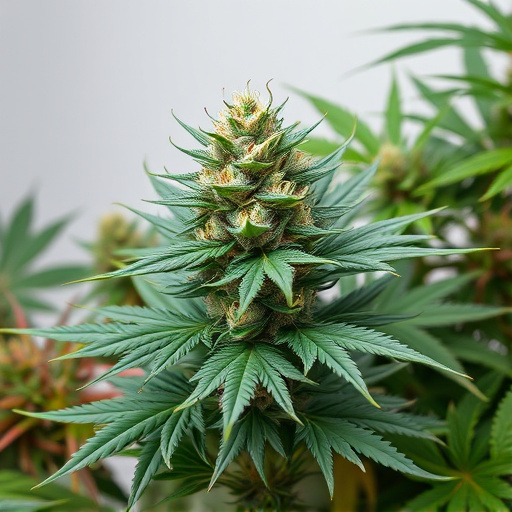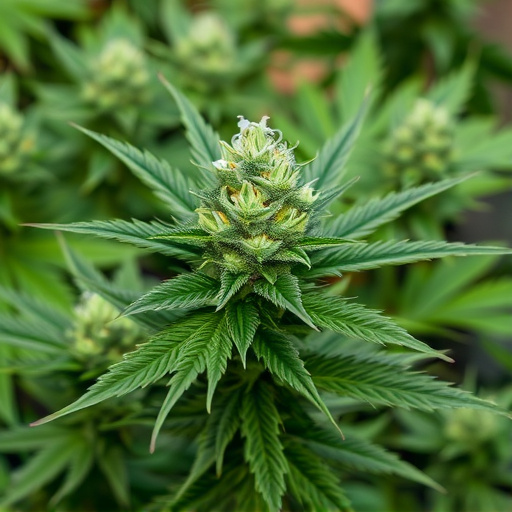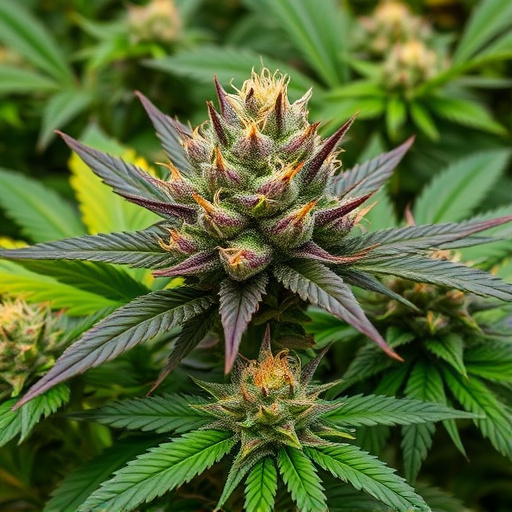Cannabis plants, scientifically known as Cannabis sativa, have diverse characteristics and effects due to various types of cannabis strains developed over time, each with unique cannabinoid profiles like THC (tetrahydrocannabinol) and CBD (cannabidiol). THC induces euphoria and medical benefits, while non-psychoactive CBD reduces anxiety and inflammation. Nutrition significantly impacts cannabis potency by affecting cannabinoid synthesis, especially in high-THC strains. Environmental factors and nutrient interactions within the plant shape the cannabinoid profile of types of cannabis strains, with specific nutrients influencing their conversion and effects.
“Wondering if your diet can amplify the effects of weed? This article delves into the intriguing connection between nutrition and cannabis potency. We explore how understanding different types of cannabis strains and their unique compounds intertwines with dietary choices, potentially enhancing their overall strength. From THC and CBD levels to the science behind strain-specific enhancement through diet, this guide offers insights for both casual and seasoned users curious about maximizing their cannabis experience while considering the role of nutrition.”
- Understanding Cannabis Strains and Their Compounds
- The Role of Nutrition in Cannabis Potency
- Exploring the Science Behind Strain Enhancement through Diet
Understanding Cannabis Strains and Their Compounds
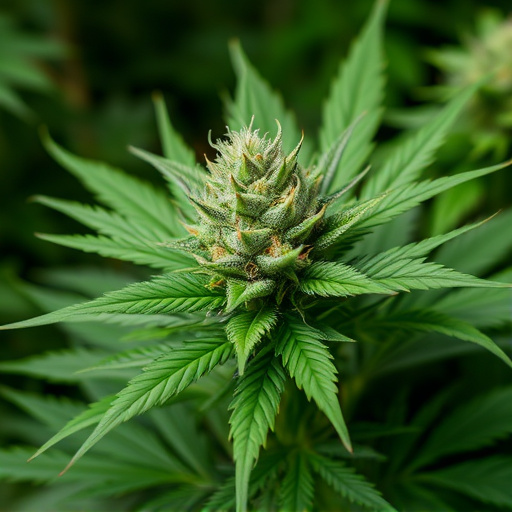
Cannabis plants, or Cannabis sativa, come in various forms, each with unique characteristics and effects. These variations are primarily attributed to different types of cannabis strains that have been cultivated over time. Strains differ in their cannabinoid profiles—the chemical compounds responsible for marijuana’s effects. Two prominent cannabinoids are THC (tetrahydrocannabinol) and CBD (cannabidiol).
THC is known for its psychoactive properties, inducing feelings of euphoria and relaxation. It also offers medical benefits, such as alleviating chronic pain and stimulating appetite. On the other hand, CBD does not produce a “high” but has gained popularity for its potential therapeutic effects, including reducing anxiety and inflammation. Different strains are bred to have varying levels of these cannabinoids, leading to diverse experiences and medicinal applications. Understanding these compounds and their interplay is essential when considering how specific foods might influence cannabis potency.
The Role of Nutrition in Cannabis Potency
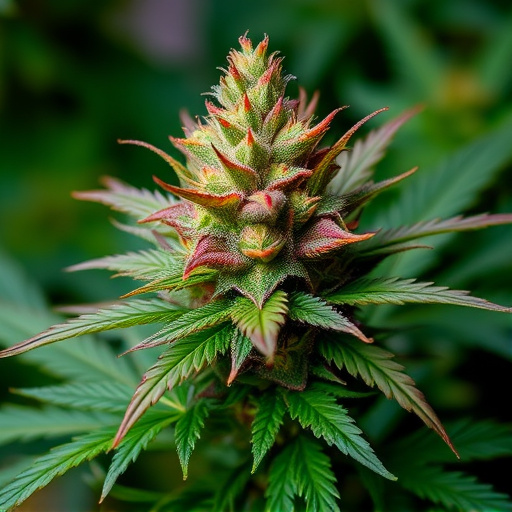
Nutrition plays a surprising role in determining the potency of cannabis. The strength of weed isn’t solely dependent on its genetic makeup or cultivation methods; what we put on our plates can also impact its final effects. Different types of cannabis strains, with their varying chemical compositions, respond differently to nutritional inputs. For instance, a strain high in THC may yield more potent results if grown with access to balanced micronutrients, enhancing its psychoactive properties.
Dietary factors such as protein, vitamins, and minerals can influence the production of cannabinoids, like THC and CBD. Adequate nutrition supports plant health during growth, allowing for optimal cannabinoid synthesis. Studies suggest that specific nutrients, when consumed in certain amounts, might even encourage the development of more potent cannabis strains. This connection between nutrition and cannabis potency highlights the importance of a well-rounded diet for both cultivators aiming to create superior products and users seeking enhanced experiences.
Exploring the Science Behind Strain Enhancement through Diet
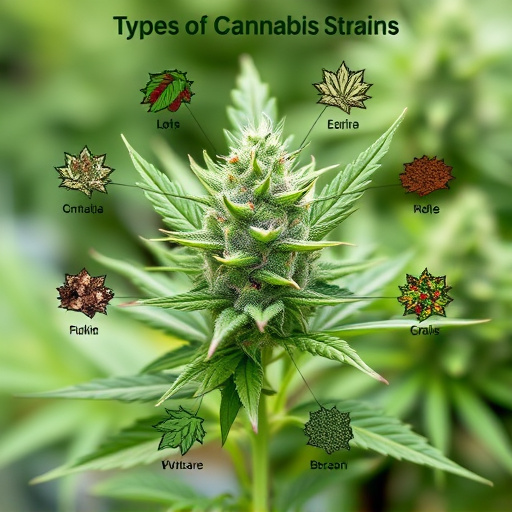
The science behind cannabis strain enhancement is a fascinating area of study, especially for those curious about how diet can influence the potency and effects of different types of cannabis strains. While it’s commonly believed that certain foods can make weed stronger, the relationship is more complex than a simple causal link. Cannabis plants contain various cannabinoids, including THC (tetrahydrocannabinol) and CBD (cannabidiol), which are responsible for their unique properties. These compounds are influenced by environmental factors like climate, soil quality, and cultivation practices, but nutrition also plays a surprising role.
Research suggests that specific nutrients can impact the cannabinoid profile of cannabis plants. For instance, certain vitamins and minerals can influence the conversion of cannabigerol (CBG) to THC, one of the most well-known cannabinoids associated with psychoactive effects. This means that dietary choices might not directly make a strain stronger, but they could contribute to the overall balance of cannabinoids present in each type of cannabis strain, potentially enhancing or altering its unique attributes and desired effects.
In exploring whether eating certain foods enhances weed potency, it’s essential to consider the intricate relationship between nutrition and cannabis compounds. Understanding various types of cannabis strains and their unique chemical profiles is key. Research suggests that specific dietary choices could potentially amplify the effects of certain cannabinoids, such as THC. However, individual experiences vary, and more studies are needed to fully comprehend the science behind strain enhancement through diet. By staying informed about both nutritional science and cannabis research, users can make educated decisions regarding their consumption habits.


